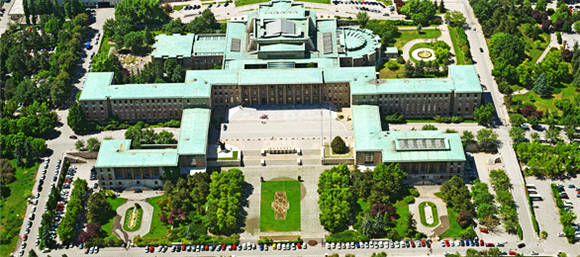State

At the crossroads between Europe and Asia, Turkey has played a crucial role in intercultural relations from ancient times to the Turkish Republic of today. As a melting pot of numerous civilizations attracted by its strategic location, Turkey is an open air living museum with an abundance of historical sites and monuments. Turkey is a democratic, secular, constitutional republic and a founding member of the United Nations, the OECD, and the G-20 major economies.
The Republic of Turkey was founded in 1923 after the collapse of the 600-year-old Ottoman Empire and a 3-year war of independence. In 1924, the Turkish government adopted secularism as one of the indispensable ruling principles of the new state. Social, political, linguistic, and economic reforms and attitudes decreed by Ataturk from 1924-1934 continue to be referred to as the ideological base of modern Turkey.
Questions regarding the role of religion in society and government, the role of linguistic and ethnic identity, and the public's expectation to live in security still dominate public discourse. Turkey is a key player in various issues of world politics, and its possible accession to the European Union has led Turkey to the centre of international debates. Today's Turkey, modern and open to the world, follows a liberal policy in its economy and political structure and strives to be an example in the region and the world.
